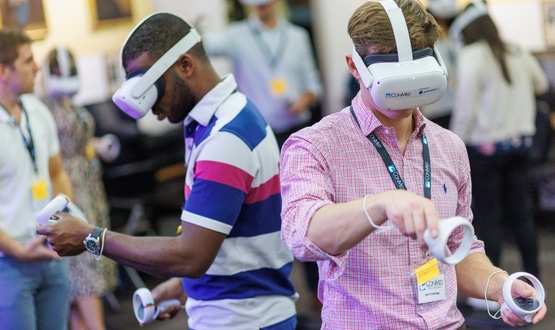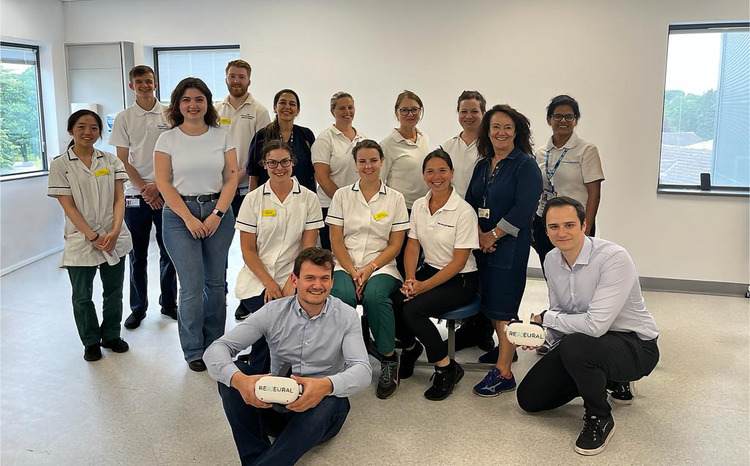Guy’s and St Thomas’ conducts surgical training using virtual reality
- 6 September 2022

Guy’s and St Thomas’ NHS Foundation Trust has been training its surgeons to use virtual reality (VR) technology.
The simulation technology allows trainees to practice and develop their surgical skills in a safe environment before they go into a real operating theatre.
By wearing a headset and holding motion controllers in each hand, the trainees create an avatar and are transported into a virtual lecture theatre before moving onto the virtual operating theatre to practice knee replacements, hip replacements and anterior cruciate ligament reconstructions.
The trust recently held the largest VR surgical training event in Europe, with more than 30 junior surgeons from across London, faculty members and industry colleagues taking part at the Gordon Museum of Pathology.
It was set up by Adil Ajuied, a consultant knee surgeon, Wathik El Alami, an orthopaedic surgeon, and Dr Paul Kelly, a consultant anaesthetist at Guy’s and St Thomas’.
Ajuied said: “Virtual reality is not just for gamers entering an electronic world. This type of surgical training is very much like an aviation simulator – pilots learn how to fly aeroplanes on the ground before they ever get onto an aeroplane with passengers.
“The benefit for our patients is that they will be cared for and treated by surgeons who have had the opportunity to rehearse, practice and run through their surgical procedures.”
Ajuied, El Alami and Kelly worked with PrecisionOS and CONMED to deliver the virtual reality surgical training event, and they plan to run similar training opportunities in the future.
Thomas Lewis, a trauma and orthopaedic surgery specialty trainee and one of many people who attended the event, said: “The thing about surgical training is it’s all about exposure to theatre time and patients, but obviously patients don’t want us to be practicing on them, so we want to get as much experience before going into theatre as possible.
“The best thing about this virtual reality technology is it allows us to be in theatre, do procedures, learn all the steps and know exactly what is going on.
“The benefit for patients in the long run is that the surgeons of the future who will be coming through will have better training, better opportunities and will therefore provide even better care.”
Despite a range of great work, this year has not come without its problems for Guy’s and St Thomas’. In July, the trust suffered major issues after its IT system failed as a result of the unprecedented heatwave that hit the UK.




